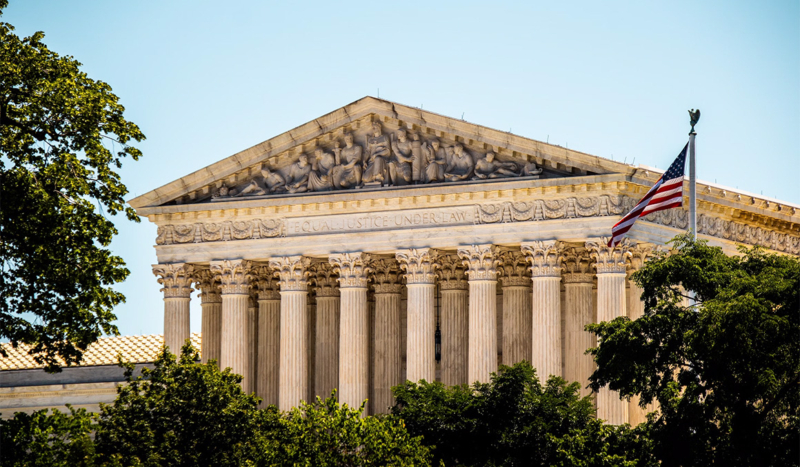
Jimmy Woo / Unsplash
CV NEWS FEED // The Supreme Court appears to be leaning in favor of an Oklahoma Catholic school being the nation’s first publicly funded religious charter institution after hearing oral arguments Wednesday in the pivotal religious freedom case.
At the center of the case is St. Isidore of Seville Catholic Virtual School, founded in 2023 by the Archdiocese of Oklahoma City and the Diocese of Tulsa. Last year, the school applied to join Oklahoma’s charter program, proposing a virtual model that fully integrates Catholic teaching into its curriculum.
Despite initial approval from the board, the Oklahoma Supreme Court ruled that St. Isidore could not be part of the charter program because of its religious character.
At Wednesday’s hearing, Justice Brett Kavanaugh sharply criticized the state’s exclusion of religious schools from public benefits.
“All the religious school is saying is, ‘Don’t exclude us on account of our religion,’” Kavanaugh said. “You go to apply to be a charter school… and then you come in and say, ‘Oh, we’re a religious school,’ and they say, ‘We’re not going to do that.’”
“You can’t treat religious people and religious institutions and religious speech as second-class in the United States,” he continued. “And when you have a program that’s open to all comers, except religion… that seems like rank discrimination against religion.”
Justice Samuel Alito echoed the concern, warning that excluding faith-based schools from public programs is discriminatory.
Meanwhile, Notre Dame law professor Richard Garnett noted that the Court’s past rulings support equal access for religious groups.
“The unifying thread is the idea that once the government decides to open up a program… it can’t single out religious people or institutions for special disadvantage,” he said.
Still, not all justices appeared convinced.
Justice Neil Gorsuch cautioned that compelling states to fund religious charter schools could prompt tighter regulation.
“Have you thought about the boomerang effect?” he asked.
Opponents, including Oklahoma Attorney General Gentner Drummond and liberal justices, argued that the proposal breaches constitutional boundaries.
Justice Elena Kagan argued that charter schools are essentially state-run entities, and Justice Ketanji Brown Jackson called them a “creation and creature of the state.”
The case follows a series of landmark rulings beginning in 2017 that expanded public funding access for religious institutions.
Unlike previous decisions, which focused on private school vouchers, this case involves a publicly operated charter school, marking new legal territory.
Justice Amy Coney Barrett recused herself from the case, leaving just eight justices to decide. A 4-4 split would uphold the Oklahoma Supreme Court’s ruling against the school.
A decision from the Court is expected by late June or early July, with significant implications for school choice and religious liberty.

